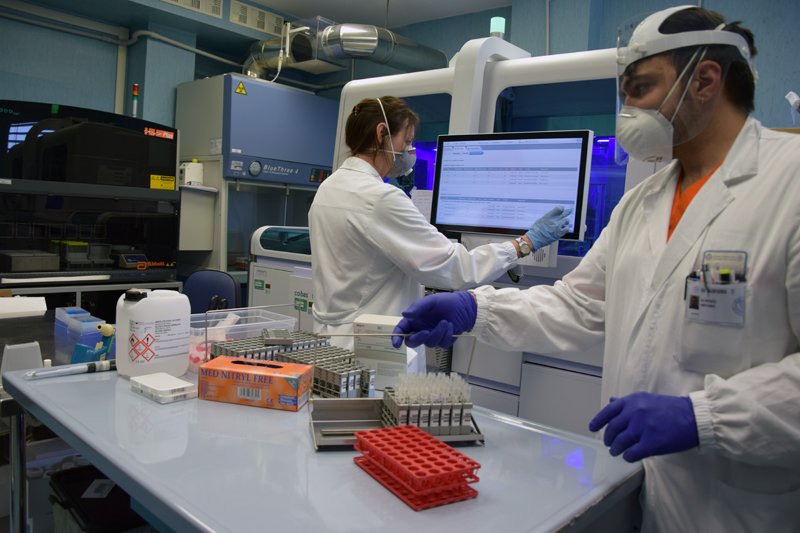In recent months, the computer systems of companies developing the Covid-19 vaccine have been targeted by numerous sophisticated hacker attacks
In the global race for the Covid-19 vaccine, there are those who are trying to trip up the researchers. We’re talking about hackers, the hackers who are literally targeting the computer systems of companies and organizations involved in vaccine development. Since June and July, cyber attacks have increased exponentially. This was revealed in the 2020 report by ENISA, the European Network and Information Security Agency. The “hottest” months were September and October when the research labs of pharmaceutical companies – Pfizer and Moderna – that had announced the imminent arrival of the Covid-19 vaccine were targeted. Hackers attempted to “sneak” into computer systems to steal confidential information, sensitive data and lab test results. According to ENISA experts, espionage is the motivation behind 20% of data breaches i.e. private data breaches recorded in the last 6 months.
Read also → “Free vaccine for all”: the appeal of 101 leaders and scientists against the Coronavirus
Covid-19 vaccine: hacker attacks increase
The hacker attacks detected so far come from three countries: Russia, China and North Korea. According to experts, these operations have a dual purpose. First, cyber criminals – often funded by their home country – act to steal the results of other states’ experiments and compare them with solutions developed in their own nation’s labs. Secondly, particularly in the case of the Korean regime, the attacks aim at stealing patents and production indications of the Covid-19 vaccine in order to develop it on their own. However, there are also purely economic reasons. Often, cybercriminals “break through” computer systems to demand ransom from the affected companies or to sell the stolen confidential information on the dark web. An attack of this kind has also been made to the EMA, the European Medicines Agency, which is about to authorize the use of the Pfizer-BioNTech vaccine in EU countries. In this regard, in a recent report by the business unit of Elmec Informatica dedicated to cybersecurity, it is stated that “Sars-Cov-2 has not only digitized entire countries but has also upset the cards on the table of world powers that fight each other in a cyber war made of vulnerabilities and sensitive data. The famous cyber non-aggression pact signed in 2015 between then U.S. President Barack Obama and Chinese President Xi seems only a distant memory“.
You might also be interested in → COVID-19: vaccine for military use approved in China
